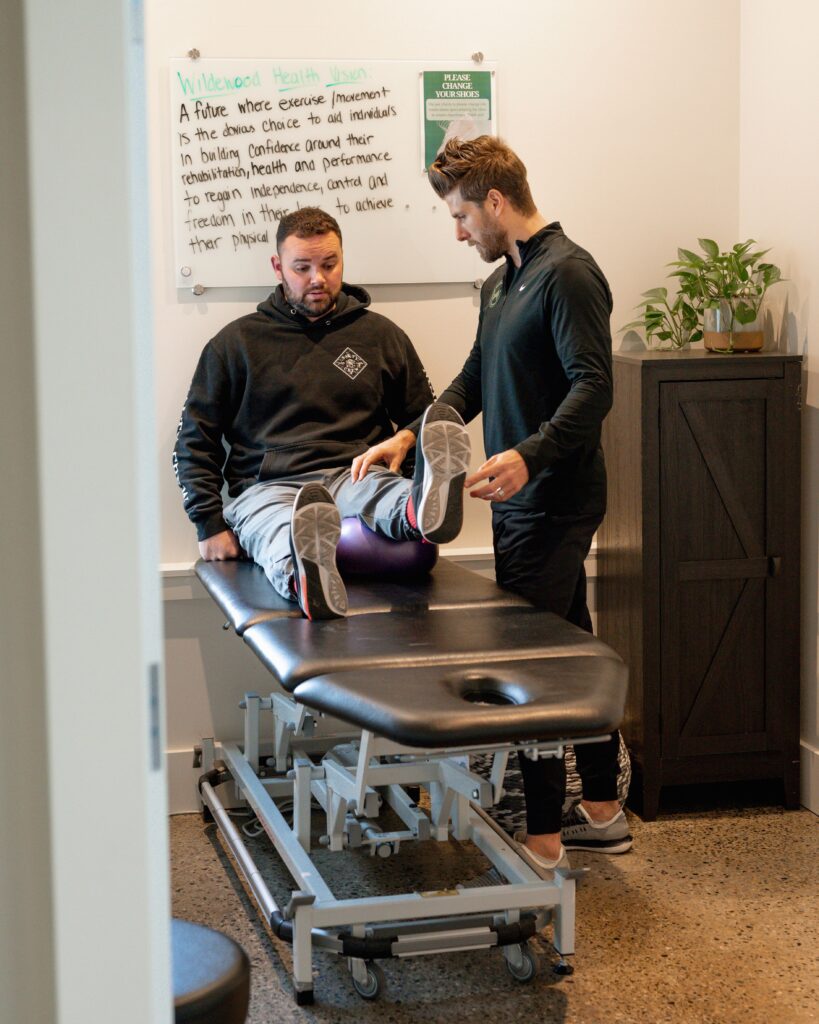Physiotherapy is an essential aspect of healthcare that helps individuals recover from injuries, manage chronic conditions, and improve their overall well-being. However, many people have questions about what physiotherapy entails, how it works, and its benefits. In this client-focused blog, we aim to provide clear and straightforward answers to the top 10 physiotherapy FAQs in Canada. So, let’s dive in and demystify physiotherapy!

FAQ #1: What is Physiotherapy?
Physiotherapy is a healthcare profession that focuses on optimizing physical function, mobility, and overall well-being. Physiotherapists use various techniques, exercises, and modalities to help individuals recover from injuries, manage pain, and improve their quality of life. Physiotherapists are often seen for IMS or intramuscular stimulation, as they are the only healthcare profession regulated to perform this type of treatment.
FAQ #2: Do I Need a Doctor's Referral for Physiotherapy?
No, you do not need a doctor’s referral to see a physiotherapist. Physiotherapists are primary healthcare providers, which means you can directly access their services. However, some insurance plans or healthcare systems may require a referral for coverage such as ICBC or WSBC claims, so it’s essential to check your specific circumstances.
FAQ #3: What Conditions Can Physiotherapy Treat?
Physiotherapy can address a wide range of conditions, including musculoskeletal injuries (e.g. back pain), neurological disorders (e.g. concussions, MS), sports injuries (e.g. rolled ankles, ACL rehabilitation), chronic pain, and more. It is effective in treating conditions like back pain, arthritis, stroke recovery, and post-surgery rehabilitation, among others.
FAQ #4: How Long Does a Typical Physiotherapy Session Last?
The duration of a physiotherapy session can vary depending on your needs and treatment plan. Typically, sessions last 30 to 60 minutes, but initial assessments may take longer. Your physiotherapist will work with you to determine the appropriate session length.
FAQ #5: Will I Receive Home Exercises?
Yes, physiotherapists often prescribe home exercises as part of your treatment plan. These exercises are designed to complement in-clinic sessions and help you progress toward your goals. Consistently doing your home exercises can significantly improve your recovery. If you are looking for a more intensive exercise program or coaching through your exercises, a kinesiologist or athletic therapist might be a great option for you.
FAQ #6: Is Physiotherapy Painful?
Physiotherapy should not be painful. In fact, it is aimed at reducing pain and discomfort. Your physiotherapist will work with you to ensure your exercises and treatments are comfortable and within your tolerance levels. If you experience pain during a session, it’s crucial to communicate with your physiotherapist.

FAQ #7: How Many Physiotherapy Sessions Will I Need?
The number of sessions required varies based on your condition and individual progress. Your physiotherapist will assess your needs and set realistic goals for your recovery. They will adjust your treatment plan as necessary to help you achieve your desired outcome.
FAQ #8: Will Physiotherapy be Covered by My Insurance?
Many private health insurance plans in Canada cover physiotherapy services, but coverage can vary. It’s essential to check your insurance policy or speak with your insurance provider to understand your specific coverage details. In some cases, government-funded programs may also provide coverage or ICBC and WSBC claims.
FAQ #9: How Do I Choose a Qualified Physiotherapist?
Look for a registered physiotherapist with the appropriate credentials, such as a Masters or Doctorate in Physiotherapy. They should be licensed by the provincial regulatory body in your province. You can also ask for recommendations from friends, family, or your primary care physician.
FAQ #10: Can Physiotherapy Help Prevent Injuries?
Yes, physiotherapy can play a crucial role in injury prevention. Physiotherapists can assess your movement patterns, identify potential risk factors, and provide exercises and strategies to reduce the likelihood of injuries, especially for athletes and active individuals. If you are looking for an Indepth movement screen or exercise program for prevention, a kinesiologist or athletic therapist might be a better fit for you.
Physiotherapy is a valuable healthcare resource that can benefit people of all ages and backgrounds. By understanding these top 10 FAQs, you can make informed decisions about your physiotherapy journey. Remember that communication with your physiotherapist is key to achieving your health and wellness goals. Don’t hesitate to ask questions and actively participate in your treatment plan for the best results.







